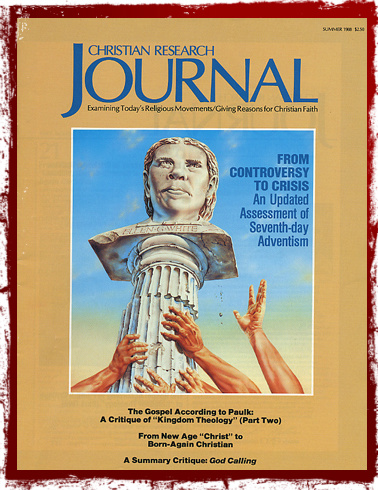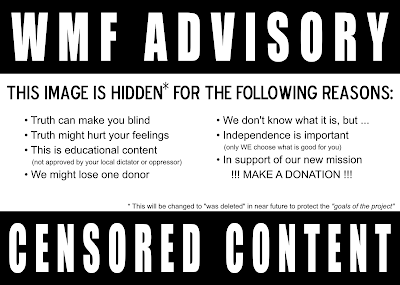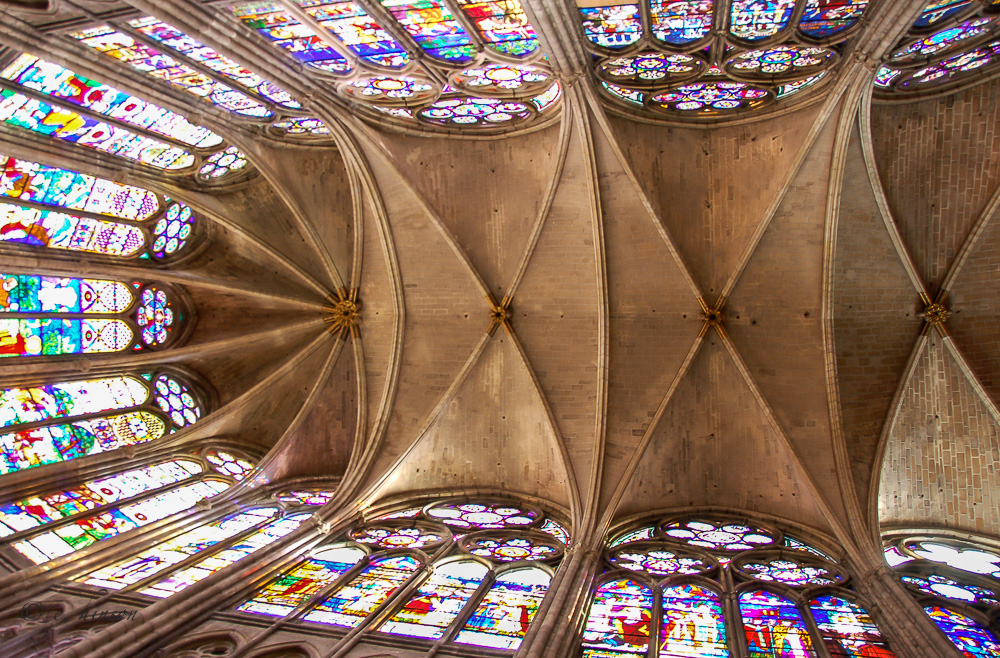The apostle to the Gentiles, in his letter to the believers in Rome, calls attention to this characteristic of Isaiah's teaching. "Isaiah is very bold," Paul declares, "and saith, I was found of them that sought Me not; I was made manifest unto them that asked not after Me." Romans 10:20.
Often the Israelites seemed unable or unwilling to understand God's purpose for the heathen. Yet it was this very purpose that had made them a separate people and had established them as an independent nation among the nations of the earth. Abraham, their father, to whom the covenant promise was first given, had been called to go forth from his kindred, to the regions beyond, that he might be a light bearer to the heathen. Although the promise to him included a posterity as numerous as the sand by the sea, yet it was for no selfish purpose that he was to become the founder of a great nation in the land of Canaan. God's covenant with him embraced all the nations of earth. "I will bless thee," Jehovah declared, "and make thy name great; and thou shalt be a blessing: and I will bless them that bless thee, and curse him that curseth thee: and in thee shall all families of the earth be blessed." Genesis 12:2, 3.
In the renewal of the covenant shortly before the birth of Isaac, God's purpose for mankind was gain made plain. "All the nations of the earth shall be blessed in him," was the assurance of the Lord concerning the child of promise. Genesis 18:18. And later the heavenly visitant once more declared, "In thy seed shall all the nations of the earth be blessed." Genesis 22:18.
The all-embracing terms of this covenant were familiar to Abraham's children and to his children's children. It was in order that the Israelites might be a blessing to the nations, and that God's name might be made known "throughout all the earth" (Exodus 9:16), that they were delivered from Egyptian bondage. If obedient to His requirements, they were to be placed far in advance of other peoples in wisdom and understanding; but this supremacy was to be reached and maintained only in order that through them the purpose of God for "all nations of the earth" might be fulfilled.
The marvelous providences connected with Israel's deliverance from Egyptian bondage and with their occupancy of the Promised Land led many of the heathen to recognize the God of Israel as the Supreme Ruler. "The Egyptians shall know," had been the promise, "that I am the Lord, when I stretch forth Mine hand upon Egypt, and bring out the children of Israel from among them." Exodus 7:5. Even proud Pharaoh was constrained to acknowledge Jehovah's power. "Go, serve the Lord," he urged Moses and Aaron, "and bless me also." Exodus 12:31, 32.
The advancing hosts of Israel found that knowledge of the mighty workings of the God of the Hebrews had gone before them, and that some among the heathen were learning that He alone was the true God. In wicked Jericho the testimony of a heathen woman was, "The Lord your God, He is God in heaven above, and in earth beneath." Joshua 2:11. The knowledge of Jehovah that had thus come to her, proved her salvation. By faith "Rahab perished not with them that believed not." Hebrews 11:31. And her conversion was not an isolated case of God's mercy toward idolaters who acknowledged His divine authority. In the midst of the land a numerous people--the Gibeonites --renounced their heathenism and united with Israel, sharing in the blessings of the covenant.
No distinction on account of nationality, race, or caste, is recognized by God. He is the Maker of all mankind. All men are of one family by creation, and all are one through redemption. Christ came to demolish every wall of partition, to throw open every compartment of the temple courts, that every soul may have free access to God. His love is so broad, so deep, so full, that it penetrates everywhere. It lifts out of Satan's influence those who have been deluded by his deceptions, and places them within reach of the throne of God, the throne encircled by the rainbow of promise. In Christ there is neither Jew nor Greek, bond nor free.
In the years that followed the occupation of the Promised Land, the beneficent designs of Jehovah for the salvation of the heathen were almost wholly lost sight of, and it became necessary for Him to set forth His plan anew. "All the ends of the world," the psalmist was inspired to sing, "shall remember and turn unto the Lord: and all the kindreds of the nations shall worship before Thee." "Princes shall come out of Egypt; Ethiopia shall soon stretch out her hands unto God." "The heathen shall fear the name of the Lord, and all the kings of the earth Thy glory." "This shall be written for the generation to come: and the people which shall be created shall praise the Lord. For He hath looked down from the height of His sanctuary; from heaven did the Lord behold the earth; to hear the groaning of the prisoner; to loose those that are appointed to death; to declare the name of the Lord in Zion, and His praise in Jerusalem; when the people are gathered together, and the kingdoms, to serve the Lord." Psalms 22:27; 68:31; 102:15, 18-22.
Had Israel been true to her trust, all the nations of earth would have shared in her blessings. But the hearts of those to whom had been entrusted a knowledge of saving truth, were untouched by the needs of those around them. As God's purpose was lost sight of, the heathen came to be looked upon as beyond the pale of His mercy. The light of truth was withheld, and darkness prevailed. The nations were overspread with a veil of ignorance; the love of God was little known; error and superstition flourished.
Such was the prospect that greeted Isaiah when he was called to the prophetic mission; yet he was not discouraged, for ringing in his ears was the triumphal chorus of the angels surrounding the throne of God, "The whole earth is full of His glory." Isaiah 6:3. And his faith was strengthened by visions of glorious conquests by the church of God, when "the earth shall be full of the knowledge of the Lord, as the waters cover the sea." Isaiah 11:9. "The face of the covering cast over all people, and the veil that is spread over all nations," was finally to be destroyed. Isaiah 25:7. The Spirit of God was to be poured out upon all flesh. Those who hunger and thirst after righteousness were to be numbered among the Israel of God. "They shall spring up as among the grass, as willows by the watercourses," said the prophet. "One shall say, I am the Lord's; and another shall call himself by the name of Jacob; and another shall subscribe with his hand unto the Lord, and surname himself by the name of Israel." Isaiah 44:4, 5.
To the prophet was given a revelation of the beneficent design of God in scattering impenitent Judah among the nations of earth. "My people shall know My name," the Lord declared; "they shall know in that day that I am He that doth speak." Isaiah 52:6. And not only were they themselves to learn the lesson of obedience and trust; in their places of exile they were also to impart to others a knowledge of the living God. Many from among the sons of the strangers were to learn to love Him as their Creator and their Redeemer; they were to begin the observance of His holy Sabbath day as a memorial of His creative power; and when He should make "bare His holy arm in the eyes of all the nations," to deliver His people from captivity, "all the ends of the earth" should see of the salvation of God. Verse 10. Many of these converts from heathenism would wish to unite themselves fully with the Israelites and accompany them on the return journey to Judea. None of these were to say, "The Lord hath utterly separated me from His people" (Isaiah 56:3), for the word of God through His prophet to those who should yield themselves to Him and observe His law was that they should thenceforth be numbered among spiritual Israel--His church on earth.
"The sons of the stranger, that join themselves to the Lord, to serve Him, and to love the name of the Lord, to be His servants, everyone that keepeth the Sabbath from polluting it, and taketh hold of My covenant; even them will I bring to My holy mountain, and make them joyful in My house of prayer: their burnt offerings and their sacrifices shall be accepted upon Mine altar; for Mine house shall be called an house of prayer for all people. The Lord God which gathereth the outcasts of Israel saith, Yet will I gather others to Him, beside those that are gathered unto Him." Verses 6-8.
The prophet was permitted to look down the centuries to the time of the advent of the promised Messiah. At first he beheld only "trouble and darkness, dimness of anguish." Isaiah 8:22. Many who were longing for the light of truth were being led astray by false teachers into the bewildering mazes of philosophy and spiritism; others were placing their trust in a form of godliness, but were not bringing true holiness into the life practice. The outlook seemed hopeless; but soon the scene changed, and before the eyes of the prophet was spread a wondrous vision. He saw the Sun of Righteousness arise with healing in His wings; and, lost in admiration, he exclaimed: "The dimness shall not be such as was in her vexation, when at the first He lightly afflicted the land of Zebulun and the land of Naphtali, and afterward did more grievously afflict her by the way of the sea, beyond Jordan, in Galilee of the nations. The people that walked in darkness have seen a great light: they that dwell in the land of the shadow of death, upon them hath the light shined." Isaiah 9:1,2.
This glorious Light of the world was to bring salvation to every nation, kindred, tongue, and people. Of the work before Him, the prophet heard the eternal Father declare: "It is a light thing that Thou shouldest be My servant to raise up the tribes of Jacob, and to restore the preserved of Israel: I will also give Thee for a light to the Gentiles, that Thou mayest be My salvation unto the end of the earth." "In an acceptable time have I heard Thee, and in a day of salvation have I helped Thee: and I will preserve Thee, and give Thee for a covenant of the people, to establish the earth, to cause to inherit the desolate heritages; that Thou mayest say to the prisoners, Go forth; to them that are in darkness, Show yourselves." "Behold, these shall come from far: and, lo, these from the north and from the west; and these from the land of Sinim." Isaiah 49:6, 8,9,12.
Looking on still farther through the ages, the prophet beheld the literal fulfillment of these glorious promises. He saw the bearers of the glad tidings of salvation going to the ends of the earth, to every kindred and people. He heard the Lord saying of the gospel church, "Behold, I will extend peace to her like a river, and the glory of the Gentiles like a flowing stream;" and he heard the commission, "Enlarge the place of thy tent, and let them stretch forth the curtains of thine habitations: spare not, lengthen thy cords, and strengthen thy stakes; for thou shalt break forth on the right hand and on the left; and thy seed shall inherit the Gentiles." Isaiah 66:12; 54:2, 3.
Jehovah declared to the prophet that He would send His witnesses "unto the nations, to Tarshish, Pul, and Lud, . . . to Tubal, and Javan, to the isles afar off." Isaiah 66:19.
"How beautiful upon the mountains
Are the feet of him that bringeth good tidings,
That publisheth peace;
That bringeth good tidings of good,
That publisheth salvation;
That saith unto Zion, Thy God reigneth!"
Isaiah 52:7.
The prophet heard the voice of God calling His church to her appointed work, that the way might be prepared for the ushering in of His everlasting kingdom. The message was unmistakably plain:
"Arise, shine; for thy light is come,
And the glory of the Lord is risen upon thee.
"For, behold, the darkness shall cover the earth,
And gross darkness the people:
But the Lord shall arise upon thee,
And His glory shall be seen upon thee.
And the Gentiles shall come to thy light,
And kings to the brightness of thy rising.
"Lift up thine eyes round about, and see:
All they gather themselves together, they come to thee:
Thy sons shall come from far,
And thy daughters shall be nursed at thy side."
"And the sons of strangers shall build up thy walls,
And their kings shall minister unto thee:
For in My wrath I smote thee,
But in My favor have I had mercy on thee.
Therefore thy gates shall be open continually;
They shall not be shut day nor night;
That men may bring unto thee the forces of the Gentiles,
And that their kings may be brought."
"Look unto Me, and be ye saved, all the ends of the earth:
For I am God, and there is none else."
Isaiah 60:1-4, 10, 11;45:22.
These prophecies of a great spiritual awakening in a time of gross darkness are today meeting fulfillment in the advancing lines of mission stations that are reaching out into the benighted regions of earth. The groups of missionaries in heathen lands have been likened by the prophet to ensigns set up for the guidance of those who are looking for the light of truth.
"In that day," says Isaiah, "there shall be a root of Jesse, which shall stand for an ensign of the people; to it shall the Gentiles seek: and his rest shall be glorious. And it shall come to pass in that day, that the Lord shall set His hand again the second time to recover the remnant of His people. . . . And He shall set up an ensign for the nations, and shall assemble the outcasts of Israel, and gather together the dispersed of Judah from the four corners of the earth." Isaiah 11:10-12.
The day of deliverance is at hand. "The eyes of the Lord run to and fro throughout the whole earth, to show Himself strong in the behalf of them whose heart is perfect toward Him." 2 Chronicles 16:9. Among all nations, kindreds, and tongues, He sees men and women who are praying for light and knowledge. Their souls are unsatisfied; long have they fed on ashes. See Isaiah 44:20. The enemy of all righteousness has turned them aside, and they grope as blind men. But they are honest in heart and desire to learn a better way. Although in the depths of heathenism, with no knowledge of the written law of God nor of His Son Jesus, they have revealed in manifold ways the working of a divine power on mind and character.
At times those who have no knowledge of God aside from that which they have received under the operations of divine grace have been kind to His servants, protecting them at the risk of their own lives. The Holy Spirit is implanting the grace of Christ in the heart of many a noble seeker after truth, quickening his sympathies contrary to his nature, contrary to his former education. The "Light, which lighteth every man that cometh into the world" (John 1:9), is shining in his soul; and this Light, if heeded, will guide his feet to the kingdom of God. The prophet Micah said: "When I sit in darkness, the Lord shall be a light unto me. . . . He will bring me forth to the light, and I shall behold His righteousness." Micah 7:8, 9.
Heaven's plan of salvation is broad enough to embrace the whole world. God longs to breathe into prostrate humanity the breath of life. And He will not permit any soul to be disappointed who is sincere in his longing for something higher and nobler than anything the world can offer. Constantly He is sending His angels to those who, while surrounded by circumstances the most discouraging, pray in faith for some power higher than themselves to take possession of them and bring deliverance and peace. In various ways God will reveal Himself to them and will place them in touch with providences that will establish their confidence in the One who has given Himself a ransom for all, "that they might set their hope in God, and not forget the works of God, but keep His commandments." Psalm 78:7.
"Shall the prey be taken from the mighty, or the lawful captive delivered?" "Thus saith the Lord, Even the captives of the mighty shall be taken away, and the prey of the terrible shall be delivered." Isaiah 49:24, 25. "They shall be greatly ashamed, that trust in graven images, that say to the molten images, Ye are our gods." Isaiah 42:17.
"Happy is he that hath the God of Jacob for his help, whose hope is in the Lord his God!" Psalm 146:5. "Turn you to the stronghold, ye prisoners of hope!" Zechariah 9:12. Unto all the honest in heart in heathen lands--"the upright" in the sight of Heaven--"there ariseth light in the darkness." Psalm 112:4. God hath spoken: "I will bring the blind by a way that they knew not; I will lead them in paths that they have not known: I will make darkness light before them, and crooked things straight. These things will I do unto them, and not forsake them." Isaiah 42:16.
http://whiteestate.org/books/pk/pk32.html The kingdom of Judah, prosperous throughout the times of Hezekiah, was once more brought low during the long years of Manasseh's wicked reign, when paganism was revived, and many of the people were led into idolatry. "Manasseh made Judah and the inhabitants of Jerusalem to err, and to do worse than the heathen." 2 Chronicles 33:9. The glorious light of former generations was followed by the darkness of superstition and error. Gross evils sprang up and flourished--tyranny, oppression, hatred of all that is good. Justice was perverted; violence prevailed.
Yet those evil times were not without witnesses for God and the right. The trying experiences through which Judah had safely passed during Hezekiah's reign had developed, in the hearts of many, a sturdiness of character that now served as a bulwark against the prevailing iniquity. Their testimony in behalf of truth and righteousness aroused the anger of Manasseh and his associates in authority, who endeavored to establish themselves in evil-doing by silencing every voice of disapproval. "Manasseh shed innocent blood very much, till he had filled Jerusalem from one end to another." 2 Kings 21:16.
One of the first to fall was Isaiah, who for over half a century had stood Judah as the appointed messenger of Jehovah. "Others had trial of cruel mockings and scourgings, yea, moreover of bonds and imprisonment: they were stoned, they were sawn asunder, were tempted, were slain with the sword: they wandered about in sheepskins and goatskins; being destitute, afflicted, tormented; (of whom the world was not worthy:) they wandered in deserts, and in mountains, and in dens and caves of the earth." Hebrews 11:36-38.
Some of those who suffered persecution during Manasseh's reign were commissioned to bear special messages of reproof and of judgment. The king of Judah, the prophets declared, "hath done wickedly above all . . . which were before him." Because of this wickedness, his kingdom was nearing a crisis; soon the inhabitants of the land were to be carried captive to Babylon, there to become "a prey and a spoil to all their enemies." 2 Kings 21:11,14. But the Lord would not utterly forsake those who in a strange land should acknowledge Him as their Ruler; they might suffer great tribulation, yet He would bring deliverance to them in His appointed time and way. Those who should put their trust wholly in Him would find a sure refuge.
Faithfully the prophets continued their warnings and their exhortations; fearlessly they spoke to Manasseh and to his people; but the messages were scorned; backsliding Judah would not heed. As an earnest of what would befall the people should they continue impenitent, the Lord permitted their king to be captured by a band of Assyrian soldiers, who "bound him with fetters, and carried him to Babylon," their temporary capital. This affliction brought the king to his senses; "he besought the Lord his God, and humbled himself greatly before the God of his fathers, and prayed unto Him: and He was entreated of him, and heard his supplication, and brought him again to Jerusalem into his kingdom. Then Manasseh knew that the Lord He was God." 2 Chronicles 33:11-13. But this repentance, remarkable though it was, came too late to save the kingdom from the corrupting influence of years of idolatrous practices. Many had stumbled and fallen, never again to rise.
Among those whose life experience had been shaped beyond recall by the fatal apostasy of Manasseh, was his own son, who came to the throne at the age of twenty-two. Of King Amon it is written: "He walked in all the way that his father walked in, and served the idols that his father served, and worshiped them: and he forsook the Lord God of his fathers" (2 Kings 21:21, 22); he "humbled not himself before the Lord, as Manasseh his father had humbled himself; but Amon trespassed more and more." The wicked king was not permitted to reign long. In the midst of his daring impiety, only two years from the time he ascended the throne, he was slain in the palace by his own servants; and "the people of the land made Josiah his son king in his stead." 2 Chronicles 33:23, 25.
With the accession of Josiah to the throne, where he was to rule for thirty-one years, those who had maintained the purity of their faith began to hope that the downward course of the kingdom was checked; for the new king, though only eight years old, feared God, and from the very beginning "he did that which was right in the sight of the Lord, and walked in all the way of David his father, and turned not aside to the right hand or to the left." 2 Kings 22:2. Born of a wicked king, beset with temptations to follow in his father's steps, and with few counselors to encourage him in the right way, Josiah nevertheless was true to the God of Israel. Warned by the errors of past generations, he chose to do right, instead of descending to the low level of sin and degradation to which his father and his grandfather had fallen. He "turned not aside to the right hand or to the left." As one who was to occupy a position of trust, he resolved to obey the instruction that had been given for the guidance of Israel's rulers, and his obedience made it possible for God to use him as a vessel unto honor.
At the time Josiah began to rule, and for many years before, the truehearted in Judah were questioning whether God's promises to ancient Israel could ever be fulfilled. From a human point of view the divine purpose for the chosen nation seemed almost impossible of accomplishment. The apostasy of former centuries had gathered strength with the passing years; ten of the tribes had been scattered among the heathen; only the tribes of Judah and Benjamin remained, and even these now seemed on the verge of moral and national ruin. The prophets had begun to foretell the utter destruction of their fair city, where stood the temple built by Solomon, and where all their earthly hopes of national greatness had centered. Could it be that God was about to turn aside from His avowed purpose of bringing deliverance to those who should put their trust in Him? In the face of the long-continued persecution of the righteous, and of the apparent prosperity of the wicked, could those who had remained true to God hope for better days?
These anxious questionings were voiced by the prophet Habakkuk. Viewing the situation of the faithful in his day, he expressed the burden of his heart in the inquiry: "O Lord, how long shall I cry, and Thou wilt not hear! even cry out unto Thee of violence, and Thou wilt not save! Why dost Thou show me iniquity, and cause me to behold grievance? for spoiling and violence are before me: and there are that raise up strife and contention. Therefore the law is slacked, and judgment doth never go forth: for the wicked doth compass about the righteous; therefore wrong judgment proceedeth." Habakkuk 1:2-4.
God answered the cry of His loyal children. Through His chosen mouthpiece He revealed His determination to bring chastisement upon the nation that had turned from Him to serve the gods of the heathen. Within the lifetime of some who were even then making inquiry regarding the future, He would miraculously shape the affairs of the ruling nations of earth and bring the Babylonians into the ascendancy. These Chaldeans, "terrible and dreadful," were to fall suddenly upon the land of Judah as a divinely appointed scourge. Verse 7. The princes of Judah and the fairest of the people were to be carried captive to Babylon; the Judean cities and villages and the cultivated fields were to be laid waste; nothing was to be spared.
Confident that even in this terrible judgment the purpose of God for His people would in some way be fulfilled, Habakkuk bowed in submission to the revealed will of Jehovah. "Art Thou not from everlasting, O Lord my God, mine Holy One?" he exclaimed. And then, his faith reaching out beyond the forbidding prospect of the immediate future, and laying fast hold on the precious promises that reveal God's love for His trusting children, the prophet added, "We shall not die." Verse 12. With this declaration of faith he rested his case, and that of every believing Israelite, in the hands of a compassionate God.
This was not Habakkuk's only experience in the exercise of strong faith. On one occasion, when meditating concerning the future, he said, "I will stand upon my watch, and set me upon the tower, and will watch to see what He will say unto me." Graciously the Lord answered him: "Write the vision, and make it plain upon tables, that he may run that readeth it. For the vision is yet for an appointed time, but at the end it shall speak, and not lie: though it tarry, wait for it; because it will surely come, it will not tarry. Behold, his soul which is lifted up is not upright in him: but the just shall live by his faith." Habakkuk 2:1-4.
The faith that strengthened Habakkuk and all the holy and the just in those days of deep trial was the same faith that sustains God's people today. In the darkest hours, under circumstances the most forbidding, the Christian believer may keep his soul stayed upon the source of all light and power. Day by day, through faith in God, his hope and courage may be renewed. "The just shall live by his faith." In the service of God there need be no despondency, no wavering, no fear. The Lord will more than fulfill the highest expectations of those who put their trust in Him. He will give them the wisdom their varied necessities demand.
Of the abundant provision made for every tempted soul, the apostle Paul bears eloquent testimony. To him was given the divine assurance, "My grace is sufficient for thee: for My strength is made perfect in weakness." In gratitude and confidence the tried servant of God responded: "Most gladly therefore will I rather glory in my infirmities, that the power of Christ may rest upon me. Therefore I take pleasure in infirmities, in reproaches, in necessities, in persecutions, in distresses for Christ's sake: for when I am weak, them am I strong." 2 Corinthians 12:9, 10.
We must cherish and cultivate the faith of which prophets and apostles have testified--the faith that lays hold on the promises of God and waits for deliverance in His appointed time and way. The sure word of prophecy will meet its final fulfillment in the glorious advent of our Lord and Saviour Jesus Christ, as King of kings and Lord of lords. The time of waiting may seem long, the soul may be oppressed by discouraging circumstances, many in whom confidence has been placed may fall by the way; but with the prophet who endeavored to encourage Judah in a time of unparalleled apostasy, let us confidently declare, "The Lord is in His holy temple: let all the earth keep silence before Him." Habakkuk 2:20. Let us ever hold in remembrance the cheering message, "The vision is yet for an appointed time, but at the end it shall speak, and not lie: though it tarry, wait for it; because it will surely come, it will not tarry. . . . The just shall live by his faith." Verses 3, 4.
"O Lord, revive Thy work in the midst of the years,
In the midst of the years make known;
In wrath remember mercy.
"God came from Teman,
And the Holy One from Mount Paran.
His glory covered the heavens,
And the earth was full of His praise.
And His brightness was as the light;
He had bright beams out of His side:
And there was the hiding of His power.
Before Him went the pestilence,
And burning coals went forth at His feet.
He stood, and measured the earth:
He beheld, and drove asunder the nations;
And the everlasting mountains were scattered,
The perpetual hills did bow:
His ways are everlasting."
"Thou wentest forth for the salvation of Thy people,
Even for salvation with Thine anointed."
"Although the fig tree shall not blossom,
Neither shall fruit be in the vines;
The labor of the olive shall fail,
And the fields shall yield no meat;
The flock shall be cut off from the fold,
And there shall be no herd in the stalls:
Yet I will rejoice in the Lord,
I will joy in the God of my salvation.
The Lord God is my strength."
Habakkuk 3:2-6, 13, 17-19, margin.
Habakkuk was not the only one through whom was given a message of bright hope and of future triumph as well as of present judgment. During the reign of Josiah the word of the Lord came to Zephaniah, specifying plainly the results of continued apostasy, and calling the attention of the true church to the glorious prospect beyond. His prophecies of impending judgment upon Judah apply with equal force to the judgments that are to fall upon an impenitent world at the time of the second advent of Christ:
"The great day of the Lord is near,
It is near, and hasteth greatly,
Even the voice of the day of the Lord:
The mighty man shall cry there bitterly.
"That day is a day of wrath,
A day of trouble and distress,
A day of wasteness and desolation,
A day of darkness and gloominess,
"A day of clouds and thick darkness,
A day of the trumpet and alarm
Against the fenced cities,
And against the high towers."
Zephaniah 1:14-16.
"I will bring distress upon men, that they shall walk like blind men, because they have sinned against the Lord: and their blood shall be poured out as dust. . . . Neither their silver nor their gold shall be able to deliver them in the day of the Lord's wrath: but the whole land shall be devoured by the fire of His jealousy: for He shall make even a speedy riddance of all them that dwell in the land." Verses 17, 18.
"Gather yourselves together, yea, gather together,
O nation not desired;
Before the decree bring forth,
Before the day pass as the chaff,
Before the fierce anger of the Lord come upon you,
Before the day of the Lord's anger come upon you.
"Seek ye the Lord, all ye meek of the earth,
Which have wrought His judgment;
Seek righteousness,
Seek meekness:
It may be ye shall be hid
In the day of the Lord's anger."
Zephaniah 2:1-3.
"Behold, at that time I will deal with all them that afflict thee: and I will save her that halteth, and gather her that was driven away; and I will make them a praise and a name, whose shame hath been in all the earth. At that time will I bring you in, and at that time will I gather you: for I will make you a name and a praise among all the peoples of the earth, when I bring again your captivity before your eyes, saith the Lord." Zephaniah 3:19, 20, R.V.
"Sing, O daughter of Zion; shout, O Israel;
Be glad and rejoice with all the heart,
O daughter of Jerusalem.
The Lord hath taken away thy judgments,
He hath cast out thine enemy:
The King of Israel, even the Lord,
Is in the midst of thee:
Thou shalt not see evil any more.
"In that day it shall be said to Jerusalem, Fear thou not:
And to Zion, Let not thine hands be slack.
The Lord thy God in the midst of thee
Is mighty; He will save,
He will rejoice over thee with joy;
He will rest in His love,
He will joy over thee with singing."
Verses 14-17.
http://whiteestate.org/books/pk/pk33.html The silent yet powerful influences set in operation by the messages of the prophets regarding the Babylonian Captivity did much to prepare the way for a reformation that took place in the eighteenth year of Josiah's reign. This reform movement, by which threatened judgments were averted for a season, was brought about in a wholly unexpected manner through the discovery and study of a portion of Holy Scripture that for many years had been strangely misplaced and lost.
Nearly a century before, during the first Passover celebrated by Hezekiah, provision had been made for the daily public reading of the book of the law to the people by teaching priests. It was the observance of the statutes recorded by Moses, especially those given in the book of the covenant, which forms a part of Deuteronomy, that had made the reign of Hezekiah so prosperous. But Manasseh had dared set aside these statutes; and during his reign the temple copy of the book of the law, through careless neglect, had become lost. Thus for many years the people generally were deprived of its instruction. The long-lost manuscript was found in the temple by Hilkiah, the high priest, while the building was undergoing extensive repairs in harmony with King Josiah's plan for the preservation of the sacred structure. The high priest handed the precious volume to Shaphan, a learned scribe, who read it and then took it to the king with the story of its discovery.
Josiah was deeply stirred as he heard read for the first time the exhortations and warnings recorded in this ancient manuscript. Never before had he realized so fully the plainness with which God had set before Israel "life and death, blessing and cursing" (Deuteronomy 30:19): and how repeatedly they had been urged to choose the way of life, that they might become a praise in the earth, a blessing to all nations. "Be strong and of a good courage, fear not, nor be afraid," Israel had been exhorted through Moses; "for the Lord thy God. He it is that doth go with thee; He will not fail thee, not forsake thee." Deuteronomy 31:6.
The book abounded in assurances of God's willingness to save to the uttermost those who should place their trust fully in Him. As He had wrought in their deliverance from Egyptian bondage, so would He work mightily in establishing them in the Land of Promise and in placing them at the head of the nations of earth.
The encouragements offered as the reward of obedience were accompanied by prophecies of judgments against the disobedient; and as the king heard the inspired words, he recognized, in the picture set before him, conditions that were similar to those actually existing in his kingdom. In connection with these prophetic portrayals of departure from God, he was startled to find plain statements to the effect that the day of calamity would follow swiftly and that there would be no remedy. The language was plain; there could be no mistaking the meaning of the words. And at the close of the volume, in a summary of God's dealings with Israel and a rehearsal of the events of the future, these matters were made doubly plain. In the hearing of all Israel, Moses had declared:
"Give ear, O ye heavens, and I will speak;
And hear, O earth, the words of my mouth.
My doctrine shall drop as the rain,
My speech shall distill as the dew,
As the small rain upon the tender herb,
And as the showers upon the grass:
Because I will publish the name of the Lord:
Ascribe ye greatness unto our God.
He is the Rock, His work is perfect:
For all His ways are judgment:
A God of truth and without iniquity,
Just and right is He."
Deuteronomy 32:1-4.
"Remember the days of old,
Consider the years of many generations:
Ask thy father, and he will show thee;
Thy elders, and they will tell thee.
When the Most High divided to the nations their
inheritance,
When He separated the sons of Adam,
He set the bounds of the people
According to the number of the children of Israel.
For the Lord's portion is His people;
Jacob is the lot of His inheritance.
He found him in a desert land,
And in the waste howling wilderness;
He led him about, He instructed him,
He kept him as the apple of His eye."
Verses 7-10.
But Israel "forsook God which made him,
And lightly esteemed the Rock of his salvation.
They provoked Him to jealousy with strange gods,
With abominations provoked they Him to anger.
They sacrificed unto devils, not to God;
To gods whom they knew not,
To new gods that came newly up,
Whom your fathers feared not.
Of the Rock that begat thee thou art unmindful,
And hast forgotten God that formed thee.
"And when the Lord saw it, He abhorred them,
Because of the provoking of His sons, and of
His daughters.
And He said, I will hide My face from them,
I will see what their end shall be:
For they are a very froward generation,
Children in whom is no faith.
They have moved Me to jealousy with that which
is not God;
They have provoked Me to anger with their vanities:
And I will move them to jealousy with those which
are not a people;
I will provoke them to anger with a foolish nation."
"I will heap mischiefs upon them;
I will spend Mine arrows upon them.
They shall be burnt with hunger, and devoured with
burning heat,
And with bitter destruction."
"For they are a nation void of counsel,
Neither is there any understanding in them.
O that they were wise, that they understood this,
That they would consider their latter end!
How should one chase a thousand,
And two put ten thousand to flight,
Except their rock had sold them,
And the Lord had shut them up?
For their rock is not as our Rock,
Even our enemies themselves being judges."
"Is not this laid up in store with Me,
And sealed up among My treasures?
To Me belongeth vengeance, and recompense;
Their foot shall slide in due time:
For the day of their calamity is at hand,
And the things that shall come upon them make haste."
Verses 15:21, 23, 24, 28-31, 34, 35.
These and similar passages revealed to Josiah God's love for His people and His abhorrence of sin. As the king read the prophecies of swift judgment upon those who should persist in rebellion, he trembled for the future. The perversity of Judah had been great; what was to be the outcome of their continued apostasy?
In former years the king had not been indifferent to the prevailing idolatry. "In the eighth year of his reign, while he was yet young," he had consecrated himself fully to the service of God. Four years later, at the age of twenty, he had made an earnest effort to remove temptation from his subjects by purging "Judah and Jerusalem from the high places, and the groves, and the carved images, and the molten images." "They brake down the altars of Baalim in his presence; and the images, that were on high above them, he cut down; and the groves, and the carved images, and the molten images, he brake in pieces, and made dust of them, and strowed it upon the graves of them that had sacrificed unto them. And he burnt the bones of the priests upon their altars, and cleansed Judah and Jerusalem." 2 Chronicles 34:3-5.
Not content with doing thorough work in the land of Judah, the youthful ruler had extended his efforts to the portions of Palestine formerly occupied by the ten tribes of Israel, only a feeble remnant of which now remained. "So did he," the record reads, "in the cities of Manasseh, and Ephraim, and Simeon, even unto Naphtali." Not until he had traversed the length and breadth of this region of ruined homes, and "had broken down the altars and the groves, and had beaten the graven images into powder, and cut down all the idols throughout all the land of Israel," did he return to Jerusalem. Verses 6,7.
Thus Josiah, from his earliest manhood, had endeavored to take advantage of his position as king to exalt to principles of God's holy law. And now, while Shaphan the scribe was reading to him out of the book of the law, the king discerned in this volume a treasure of knowledge, a powerful ally, in the work of reform he so much desired to see wrought in the land. He resolved to walk in the light of its counsels, and also to do all in his power to acquaint his people with its teachings and to lead them, if possible, to cultivate reverence and love for the law of heaven.
But was it possible to bring about the needed reform? Israel had almost reached the limit of divine forbearance; soon God would arise to punish those who had brought dishonor upon His name. Already the anger of the Lord was kindled against the people. Overwhelmed with sorrow and dismay, Josiah rent his garments and bowed before God in agony of spirit, seeking pardon for the sins of an impenitent nation.
At that time the prophetess Huldah was living in Jerusalem, near the temple. The mind of the king, filled with anxious foreboding, reverted to her, and he determined to inquire of the Lord through this chosen messenger to learn, if possible, whether by any means within his power he might save erring Judah, now on the verge of ruin.
The gravity of the situation and the respect in which he held the prophetess led him to choose as his messengers to her the first men of the kingdom. "Go ye," he bade them, "inquire of the Lord for me, and for the people, and for all Judah, concerning the words of this book that is found: for great is the wrath of the Lord that is kindled against us, because our fathers have not hearkened unto the words of this book, to do according unto all that which is written concerning us." 2 Kings 22:13.
Through Huldah the Lord sent Josiah word that Jerusalem's ruin could not be averted. Even should the people now humble themselves before God, they could not escape their punishment. So long had their senses been deadened by wrongdoing that, if judgment should not come upon them, they would soon return to the same sinful course. "Tell the man that sent you to me," the prophetess declared, "Thus saith the Lord, Behold, I will bring evil upon this place, and upon the inhabitants thereof, even all the words of the book which the king of Judah hath read: because they have forsaken Me, and have burned incense unto other gods, that they might provoke Me to anger with all the works of their hands; therefore My wrath shall be kindled against this place, and shall not be quenched." Verses 15-17.
But because the king had humbled his heart before God, the Lord would acknowledge his promptness in seeking forgiveness and mercy. To him was sent the message: "Because thine heart was tender, and thou hast humbled thyself before the Lord, when thou heardest what I spake against this place, and against the inhabitants thereof, that they should become a desolation and a curse, and hast rent thy clothes, and wept before Me; I also have heard thee, saith the Lord. Behold therefore, I will gather thee unto thy fathers, and thou shalt be gathered into thy grave in peace; and thine eyes shall not see all the evil which I will bring upon this place." Verses 19, 20.
The king must leave with God the events of the future; he could not alter the eternal decrees of Jehovah. But in announcing the retributive judgments of Heaven, the Lord had not withdrawn opportunity for repentance and reformation; and Josiah, discerning in this a willingness on the part of God to temper His judgments with mercy, determined to do all in his power to bring about decided reforms. He arranged at once for a great convocation, to which were invited the elders and magistrates in Jerusalem and Judah, together with the common people. These, with the priests and Levites, met the king in the court of the temple.
To this vast assembly the king himself read "all the words of the book of the covenant which was found in the house of the Lord." 2 Kings 23:2. The royal reader was deeply affected, and he delivered his message with the pathos of a broken heart. His hearers were profoundly moved. The intensity of feeling revealed in the countenance of the king, the solemnity of the message itself, the warning of judgments impending--all these had their effect, and many determined to join with the king in seeking forgiveness.
Josiah now proposed that those highest in authority unite with the people in solemnly covenanting before God to co-operate with one another in an effort to institute decided changes. "The king stood by a pillar, and made a covenant before the Lord, to walk after the Lord, and to keep His commandments and His testimonies and His statutes with all their heart and all their soul, to perform the words of this covenant that were written in this book." The response was more hearty than the king had dared hope for: "All the people stood to the covenant." Verse 3.
In the reformation that followed, the king turned his attention to the destruction of every vestige of idolatry that remained. So long had the inhabitants of the land followed the customs of the surrounding nations in bowing down to images of wood and stone, that it seemed almost beyond the power of man to remove every trace of these evils. But Josiah persevered in his effort to cleanse the land. Sternly he met idolatry by slaying "all the priests of the high places;" "moreover the workers with familiar spirits, and the wizards, and the images, and the idols, and all the abominations that were spied in the land of Judah and in Jerusalem, did Josiah put away, that he might perform the words of the law which were written in the book that Hilkiah the priest found in the house of the Lord." Verses 20, 24.
In the days of the rending of the kingdom, centuries before, when Jeroboam the son of Nebat, in bold defiance of the God whom Israel had served, was endeavoring to turn the hearts of the people away from the services of the temple in Jerusalem to new forms of worship, he had set up an unconsecrated altar at Bethel. During the dedication of this altar, where many in years to come were to be seduced into idolatrous practices, there had suddenly appeared a man of God from Judea, with words of condemnation for the sacrilegious proceedings. He had "cried against the altar," declaring:
"O altar, altar, thus saith the Lord; Behold, a child shall be born unto the house of David, Josiah by name; and upon thee shall he offer the priests of the high places that burn incense upon thee, and men's bones shall be burnt upon thee." 1 Kings 13:2. This announcement had been accompanied by a sign that the word spoken was of the Lord.
Three centuries had passed. During the reformation wrought by Josiah, the king found himself in Bethel, where stood this ancient altar. The prophecy uttered so many years before in the presence of Jeroboam, was now to be literally fulfilled.
"The altar that was at Bethel, and the high place which Jeroboam the son of Nebat, who made Israel to sin, had made, both that altar and the high place he brake down, and burned the high place, and stamped it small to powder, and burned the grove.
"And as Josiah turned himself, he spied the sepulchers that were there in the mount, and sent, and took the bones out of the sepulchers, and burned them upon the altar, and polluted it, according to the word of the Lord which the man of God proclaimed, who proclaimed these words.
"Then he said, What title is that that I see? And the men of the city told him, It is the sepulcher of the man of God, which came from Judah, and proclaimed these things that thou hast done against the altar of Bethel. And he said, Let him alone; let no man move his bones. So they let his bones alone, with the bones of the prophet that came out of Samaria." 2 Kings 23:15-18.
On the southern slopes of Olivet, opposite the beautiful temple of Jehovah on Mount Moriah, were the shrines and images that had been placed there by Solomon to please his idolatrous wives. See 1 Kings 11:6-8. For upwards of three centuries the great, misshapen images had stood on the "Mount of Offense," mute witnesses to the apostasy of Israel's wisest king. These, too, were removed and destroyed by Josiah.
The king sought further to establish the faith of Judah in the God of their fathers by holding a great Passover feast, in harmony with the provisions made in the book of the law. Preparation was made by those having the sacred services in charge, and on the great day of the feast, offerings were freely made. "There was not holden such a Passover from the days of the judges that judged Israel, nor in all the days of the kings of Israel, nor of the kings of Judah." 2 Kings 23:22. But the zeal of Josiah, acceptable though it was to God, could not atone for the sins of past generations; nor could the piety displayed by the king's followers effect a change of heart in many who stubbornly refused to turn from idolatry to the worship of the true God.
For more than a decade following the celebration of the Passover, Josiah continued to reign. At the age of thirty-nine he met death in battle with the forces of Egypt, "and was buried in one of the sepulchers of his fathers." "All Judah and Jerusalem mourned for Josiah. And Jeremiah lamented for Josiah: and all the singing men and the singing women spake of Josiah in their lamentations to this day, and made them an ordinance in Israel: and, behold, they are written in the lamentations." 2 Chronicles 35:24, 25. Like unto Josiah "was there no king before him, that turned to the Lord with all his heart, and with all his soul, and with all his might, according to all the law of Moses; neither after him arose there any like him. Notwithstanding the Lord turned not from the fierceness of His great wrath, . . . because of all the provocations that Manasseh had provoked Him withal." 2 Kings 23:25, 26. The time was rapidly approaching when Jerusalem was to be utterly destroyed and the inhabitants of the land carried captive to Babylon, there to learn the lessons they had refused to learn under circumstances more favorable.
Last edited by orthodoxymoron on Thu Aug 18, 2016 8:13 pm; edited 1 time in total
























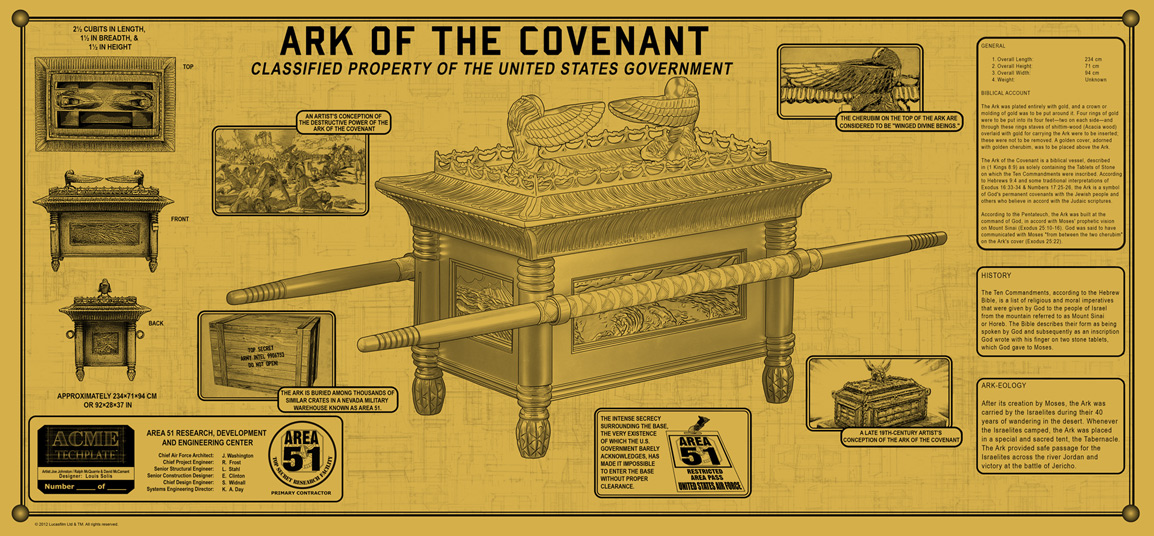















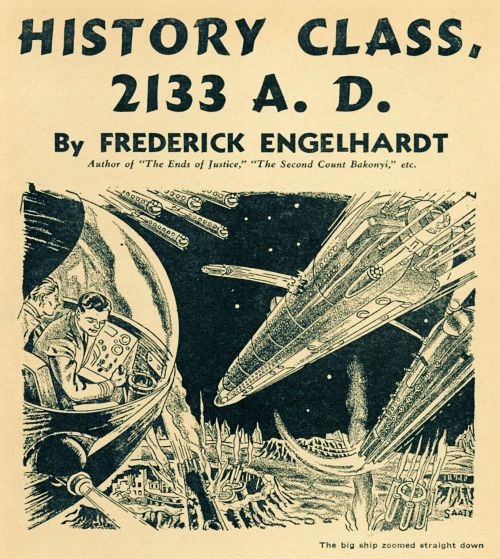


















.jpg)















